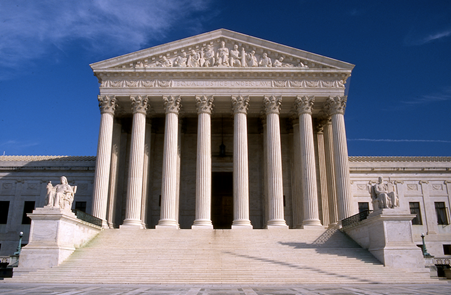The Factual Background
On August 5, 2024, two days ago, the United States Supreme Court rejected the bid of the Missouri Attorney General to even consider delaying the sentencing of Donald Trump in the hush money case in which Trump was convicted on 34 felony counts.
Why Does it Matter?
Donald Trump was convicted from the jury nullification strategies of DA Alvin Bragg. It was Bragg, who, before trial, unlawfully published through the news media negative prejudicial information against Trump. In doing so, Bragg removed Trump’s legal right to be presumed innocent, originating from the Fifth and Sixth Amendment, and illicitly substituted in its place his presumed guilt. This resulted in contaminating the jury decision-making process in favor of the prosecutor. In so doing, Bragg violated Rule 3.6(a), 3.8(f) and 8.3(d) of the rules of professional conduct. https://www.americanbar.org/groups/professional_responsibility/publications/model_rules_of_professional_conduct/
Without those felony convictions gained from the contamination, there would be no need for any sentencing, much less a delay of sentencing.
How Does the Supreme Court Fit into All This?
The United States Supreme Court is the highest court in the land. Article III Section 1 of the Constitution declares that,
“The judicial power of the United States, shall be vested in one Supreme Court, and in such inferior courts as the Congress may from time to time may ordain and establish. The judges, both of the supreme and inferior courts, shall hold their offices during good behaviour …”
In addition to being vested with this “judicial power” above the “inferior courts,” the Supreme Court has superintending power over the conduct of the legal profession prescribed by the rules of professional conduct. Indeed, those rules establish and maintain that all lawyers, from the lowest to the highest, are subject to discipline if they fail to report to the state bar association, the professional misconduct of other lawyers under Rule 8.3(a). All lawyers include judges, from the lowest to the highest.
In this regard, the U.S Supreme Court, along with all the “inferior courts,” was aware of the negative wrongful publicity perpetrated by DA Bragg. Yet, no reporting of any kind has surfaced to show such reporting was provided to the state bar association for disciplinary purposes.
Thus, if no one else reported the Bragg misconduct, it was up to the U.S. Supreme Court to do it. No known record shows that they ever did their duty to report to the state bar association either.
This Brings us to the Rejection of the Bid to Delay Sentencing in the Trump Felony Conviction Case
From the before trial wrongful publicity to the jury verdict to the setting of the date for sentencing, the Supreme Court had superintending oversight of Bragg’s professional misconduct. Instead of dealing with it, with one more chance, it buried the professional misconduct by pretending that it didn’t exist as they rejected the bid to delay sentencing against Trump.




Yes, those are very good questions. Dwight Eisenhower's 1961 warning about the
vast reach of the military-industrial complex would appear to be on point with this. In the meantime,
another newsletter on the Supreme Court's corruption and Bragg's illicit prosecution is scheduled to be published today.
Well you explained the technical legal responsibilities that the Supreme Court has, it would be interesting to know the internal political machinations that stop them from carrying out their full SCOTUS responsibilities.